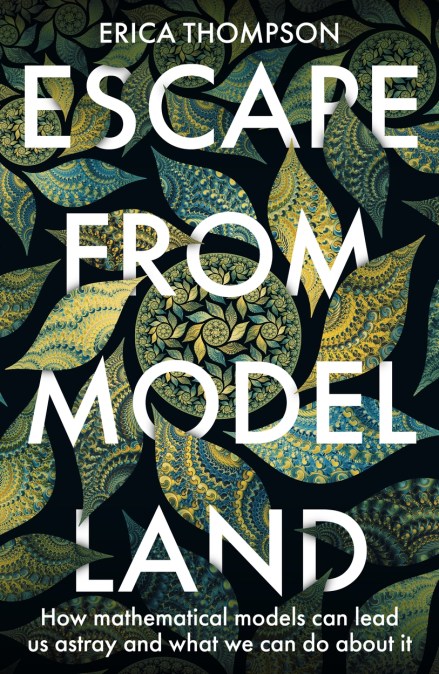‘A brilliant account of how models are so often abused and of how they should be used’ John Kay
How do mathematical models shape our world – and how can we harness their power for good?
Models are at the centre of everything we do. Whether we use them or are simply affected by them, they act as metaphors that help us better understand the increasingly complex problems facing us in the modern world. Without models, we couldn’t begin to tackle three of the major challenges facing modern society: regulation of the economy, climate change and the COVID-19 pandemic. Yet in recent years, the validity of the models we use has been hotly debated and there has been renewed awareness of the disastrous consequences when the makers and interpreters of models get things wrong.
Drawing on contemporary examples from finance, climate and health policy, Erica Thompson explores what models are, why we need them, how they work and what happens when they go wrong. This is not a book that argues we should do away with models, but rather, that we need to properly understand how they are constructed – and how some of the assumptions that underlie the models we use can have significant unintended consequences. Unexpectedly humorous, thought-provoking and passionate, this is essential reading for everyone.
How do mathematical models shape our world – and how can we harness their power for good?
Models are at the centre of everything we do. Whether we use them or are simply affected by them, they act as metaphors that help us better understand the increasingly complex problems facing us in the modern world. Without models, we couldn’t begin to tackle three of the major challenges facing modern society: regulation of the economy, climate change and the COVID-19 pandemic. Yet in recent years, the validity of the models we use has been hotly debated and there has been renewed awareness of the disastrous consequences when the makers and interpreters of models get things wrong.
Drawing on contemporary examples from finance, climate and health policy, Erica Thompson explores what models are, why we need them, how they work and what happens when they go wrong. This is not a book that argues we should do away with models, but rather, that we need to properly understand how they are constructed – and how some of the assumptions that underlie the models we use can have significant unintended consequences. Unexpectedly humorous, thought-provoking and passionate, this is essential reading for everyone.
Newsletter Signup
By clicking ‘Sign Up,’ I acknowledge that I have read and agree to Hachette Book Group’s Privacy Policy and Terms of Use
Reviews
Carefully researched and beautifully written . . . For an open-minded reader keen to expose, understand and potentially reconstruct their own worldview, Escape from Model Land is, at the same time, an uncomfortable and uplifting read. It shines a gentle light on many of our own norms and beliefs
Demystifies the process of making the mathematical models that are increasingly used to make decisions about our lives . . . A thought-provoking and helpful guide for data scientists and decision makers alike
A brilliant account of how models are so often abused and of how they should be used
A wise, lucid and compelling guide to how mathematical modelling shapes our world. Dr Thompson teaches us how to go from being unthinking consumers of models to sophisticated users, combining a rich variety of vivid examples and case studies with deep conceptual expertise
An eye-opening account . . . Thompson offers a host of lessons . . . The result is a thoughtful, convincing look at how data works
Brilliant . . . a highly engaging work of popular science
[A] healthy realism about data, algorithms and their limitations . . . Thompson asks data scientists to be conscious of the choices and values in a model's design . . . [offering] the basis for a constructive agenda
Data, computing power, AI, and the models that use them will continue to proliferate. The wisdom, life experience, and humility to make the best use of those powerful tools will remain scarce. This delightfully wide-ranging book offers heaps of the latter to help us generate genuine insights from the former
Offers a contemplative, densely encapsulated summary of her reflection and research . . . it's up to us to learn from models without being drawn in by their seductive elegance, and to ensure that the lessons from Model Land find substantive expression where it actually matters: in our messy, material, magnificent world

